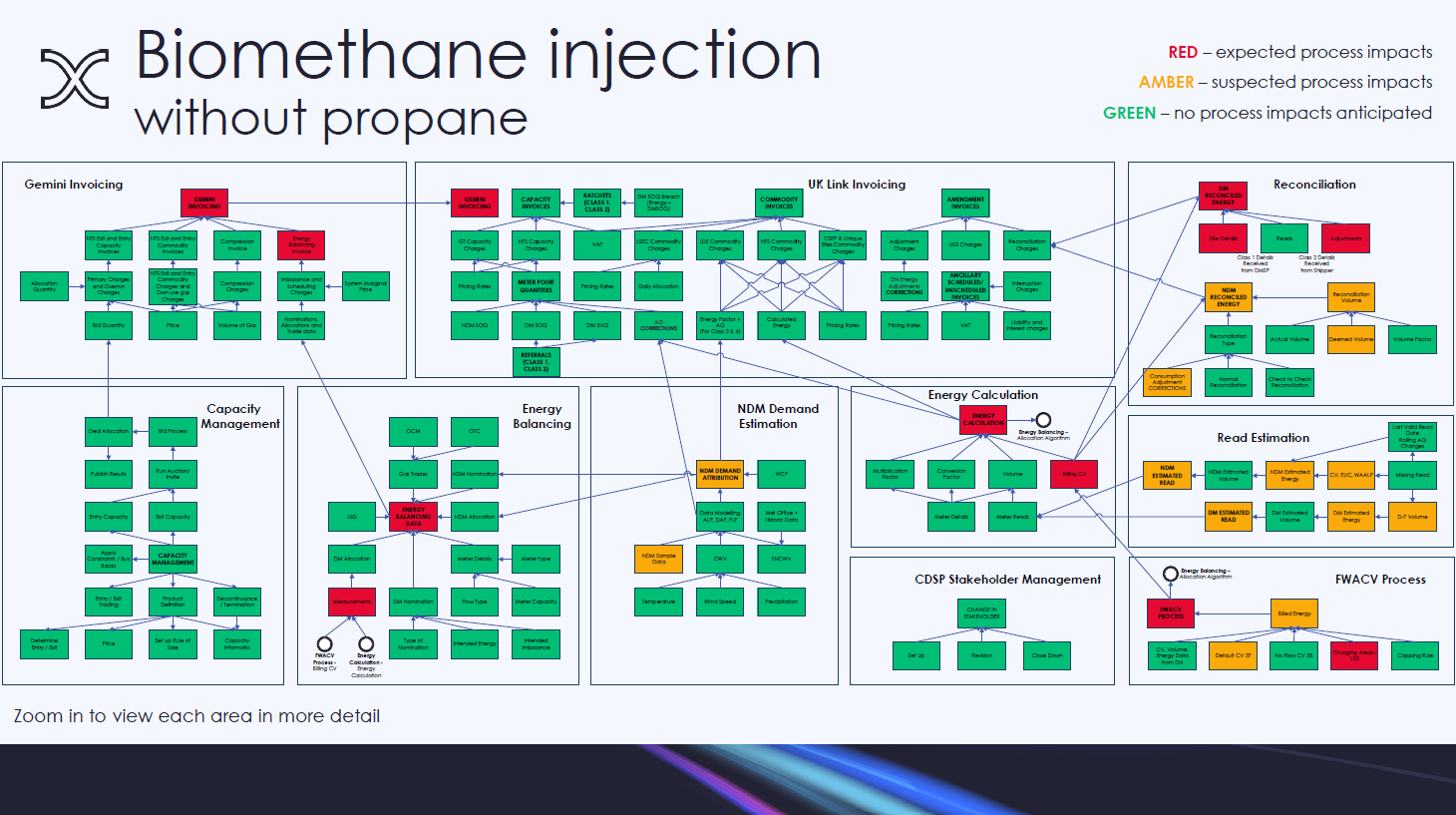Biomethane injection without propane
Biomethane sites produce methane commonly via anaerobic digestion. This gas has a lower calorific value than the rest of the gas, so to bring it in line, propane is added.
This additional propane produces more carbon dioxide and increases costs, so using biomethane without the inclusion of propane helps by reducing the amount of carbon dioxide produced.
Low to medium impact on CDSP systems
- A lower biomethane calorific value (CV) in this scenario could affect the Flow Weighted Average CV (FWACV) process. To maintain billing accuracy, additional charging zones within the LDZ may be required.
- No other CDSP system changes are identified at this stage.
RAG matrix
- RED – expected process impacts
- AMBER – suspected process impacts
- GREEN – no process impacts anticipated
Note: This assessment does not define the scale or complexity of impacts.
| CDSP Process | RAG Status |
| Capacity Management | |
| Demand Estimation | |
| Flow Weighted Average Calorific Value (FWACV) | |
| Energy Balancing | |
| NDM Reconciliation | |
| Supply Meter Point Quantities | |
| Energy calculations | |
| Read estimations | |
| Corrections | |
| Referrals | |
| Change of Stakeholder | |
| Commodity Invoice | |
| Capacity Invoice | |
| Amendments Invoice | |
| Gemini invoicing | |
| DM Reconciliation | |
| Ratchets | |
| Scheduled and unscheduled invoices |
Context diagram
-
 Biomethane injection without propane context diagram
Biomethane injection without propane context diagramA high-level visualisation outlining the scope of changes posed to systems and processes, in the Biomethane injection without propane scenario.
PDF, Last Updated 7/08/2025, 141.9 KB
More information
If you would like more detailed information about the four decarbonisation options, and the potential affects they could have on the CDSP central systems and processes, please email us at decarbonisation@xoserve.com.
Related links
More information
Contact us if have any questions or would like to know more about the four decarbonisation scenarios.
